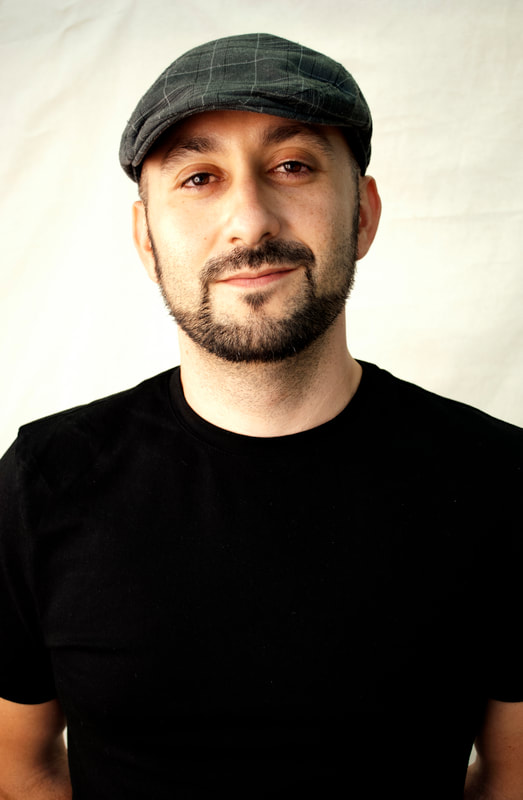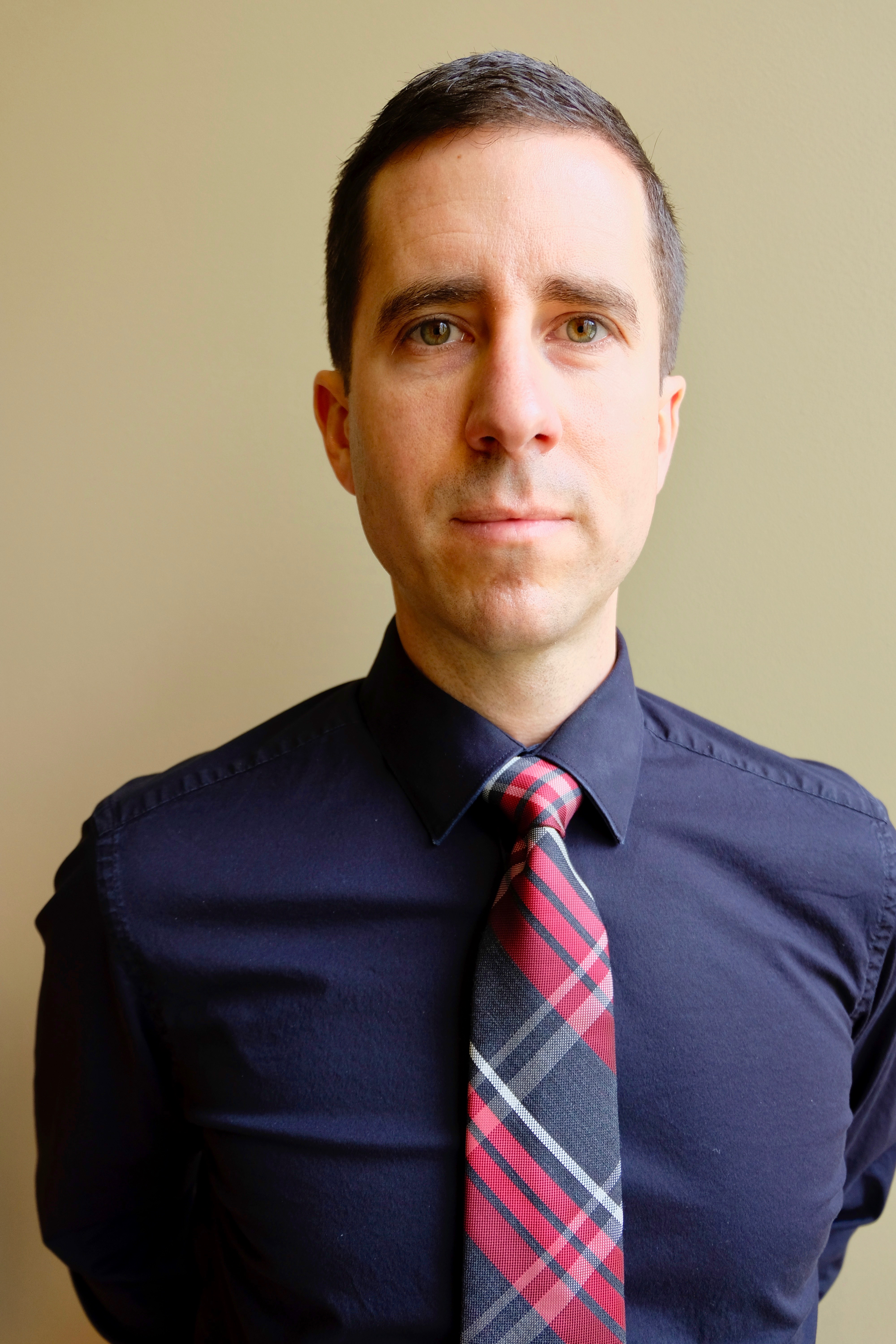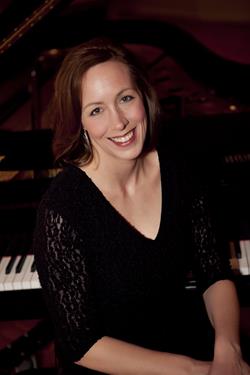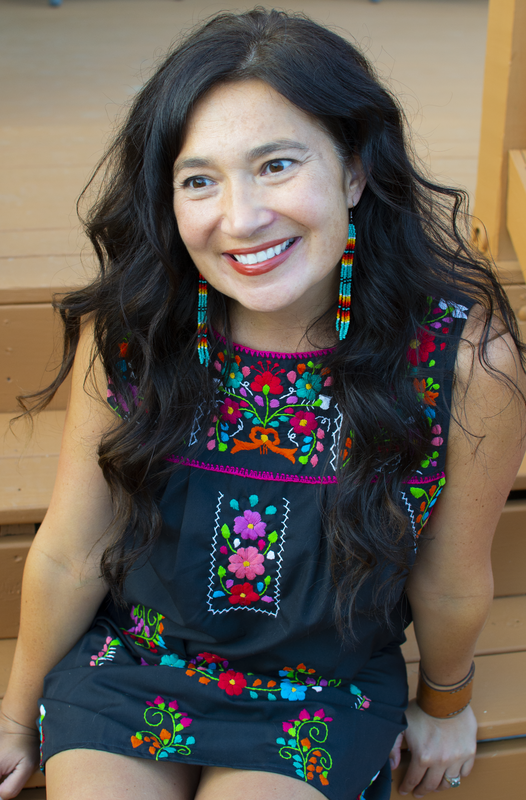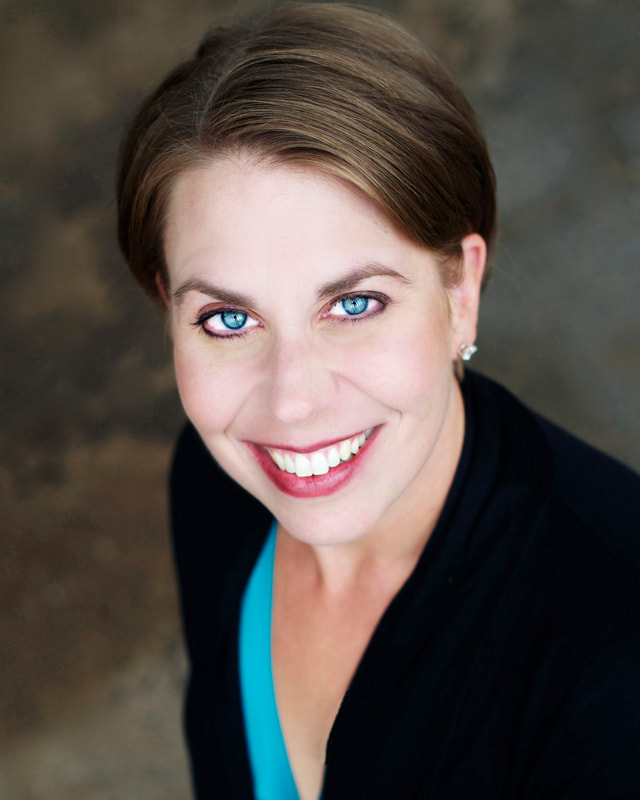Selected movements available for performance now. Contact Lisa to learn more.
Full cycle available for purchase in May 2024.
Full cycle available for purchase in May 2024.
An interdisciplinary team of composers, poets, performers, sound designers, and recording engineers from across the U.S. present NO ONE SAVES THE EARTH FROM US BUT US, an Earth Day call to action concert urging immediate steps to address the global climate crisis. The concert will be livestreamed on Friday, April 22 (Earth Day) at 5:00 Pacific, followed by a talkback with the creative team on Zoom. Tickets are free but registration is required. We invite you to make a donation to a climate action organization of your choice in lieu of a ticket fee.
The concert features the release of a filmed performance of No One Saves the Earth from Us But Us, a major song cycle commissioned by mezzo-soprano Quinn Patrick Ankrum (OH) and pianist Elizabeth Avery (OK) and written by award-winning composer Lisa Neher (OR) with poetry by Felicia Zamora (OH) and Craig Santos Perez (HI). The piece speaks to the gravity of global climate change with unflinching clarity and directness, holding space for the mourning, fear, and anger we experience in the face of this catastrophe and advocating immediate action. Zamora’s poem takes inspiration from data and interrogates why humans are so resistant to change. Poems from Perez’s Thirteen Ways of Looking at a Glacier sound a clarion call about environmental justice. The music ranges in style from tuneful grooves to experimental techniques. The final movement sets an erasure version of Zamora’s poetry, in which the blank space on the page is translated into a series of bell-like repeating chords in the piano.
The piece experiments with technology to allows for collaboration without burning fossil fuels by flying across the country. Conceived by Ankrum and Avery as a way to collaborate remotely from across the country during the COVID-19 pandemic, Ankrum and Zamora recorded all of the vocal parts first in small pieces. These vocal events were mixed and produced by Kate Bohanan (OH) and programmed into software by the project’s digital process creator Jonah Elrod (NC) and were controlled during the live performance by Avery using a foot pedal. This recorded performance was filmed by Josh Bivens (OK) and produced, mixed, and mastered by Christina Giacona and Patrick Conlon of Onyx Lane (OK). The work is inspired by Greta Thunberg and dedicated to her generation and those who will follow.
This project was made possible by funding from the University of Oklahoma Faculty Senate and the University of Cincinnati Office of the Vice President for Research.
The concert features the release of a filmed performance of No One Saves the Earth from Us But Us, a major song cycle commissioned by mezzo-soprano Quinn Patrick Ankrum (OH) and pianist Elizabeth Avery (OK) and written by award-winning composer Lisa Neher (OR) with poetry by Felicia Zamora (OH) and Craig Santos Perez (HI). The piece speaks to the gravity of global climate change with unflinching clarity and directness, holding space for the mourning, fear, and anger we experience in the face of this catastrophe and advocating immediate action. Zamora’s poem takes inspiration from data and interrogates why humans are so resistant to change. Poems from Perez’s Thirteen Ways of Looking at a Glacier sound a clarion call about environmental justice. The music ranges in style from tuneful grooves to experimental techniques. The final movement sets an erasure version of Zamora’s poetry, in which the blank space on the page is translated into a series of bell-like repeating chords in the piano.
The piece experiments with technology to allows for collaboration without burning fossil fuels by flying across the country. Conceived by Ankrum and Avery as a way to collaborate remotely from across the country during the COVID-19 pandemic, Ankrum and Zamora recorded all of the vocal parts first in small pieces. These vocal events were mixed and produced by Kate Bohanan (OH) and programmed into software by the project’s digital process creator Jonah Elrod (NC) and were controlled during the live performance by Avery using a foot pedal. This recorded performance was filmed by Josh Bivens (OK) and produced, mixed, and mastered by Christina Giacona and Patrick Conlon of Onyx Lane (OK). The work is inspired by Greta Thunberg and dedicated to her generation and those who will follow.
This project was made possible by funding from the University of Oklahoma Faculty Senate and the University of Cincinnati Office of the Vice President for Research.
Program Note
No One Saves the Earth from Us But Us
As I wrote No One Saves the Earth from Us But Us, a record-breaking heatwave brought temperatures as high as 116 degrees to my city of Portland, Oregon. Just 9 months earlier, we fled our home as wildfires, less than 10 miles away, produced off the charts air pollution for weeks. Climate change, a phrase that has been with me as long as I can remember, is now something we experience on a daily basis.
Craig Santos Perez and Felicia Zamora’s powerful, heartbreaking, gorgeous poetry speaks to this reality with unflinching clarity and directness. Inspired by their words, the piece holds space for mourning, for fear, for anger, for all of the emotions we experience in the face of this global catastrophe. It affirms that we are not alone in our grief, but neither are we off the hook for taking action. It’s a kick in the pants to level up our efforts as individuals and, most importantly, as communities.
The piece was designed to be a remote collaboration between the performers, a way of creating a song cycle during the COVID-19 pandemic and without burning fossil fuels by flying across the country. With this in mind, I wrote music in which one of the performers often leads, providing a pickup or hook to the other. Some movements, such as In the Bloomberg Article, involve almost no syncing between the performers, while others, such as We Want to Believe, work almost like a reverse accompaniment track. Because we had the benefit of pre-recording the vocals, I could ask for layered effects such as whispered or spoken text at the same time as sung text, or for the singer to harmonize with herself, as she does in Among Starving Polar Bears. Mezzo-soprano Quinn Patrick Ankrum and poet Felicia Zamora recorded the vocal parts in small chunks which were edited and loaded into software designed by Jonah Elrod. During the live performance, Avery plays while triggering the vocal events using a foot pedal.
The music ranges in style from tuneful grooves to wild chromaticism and clusters to experimental techniques. As pianist Elizabeth Avery observed during one rehearsal, “once the pianist is reaching inside the piano, you know things are not normal anymore”—and that, in fact, is the point. The final movement sets an erasure version of Zamora’s poetry, in which the blank negative space on the page is translated into a series of bell-like repeating chords in the piano, with individual words or short phrases from the singer hovering in between as a benediction.
--Lisa Neher
As I wrote No One Saves the Earth from Us But Us, a record-breaking heatwave brought temperatures as high as 116 degrees to my city of Portland, Oregon. Just 9 months earlier, we fled our home as wildfires, less than 10 miles away, produced off the charts air pollution for weeks. Climate change, a phrase that has been with me as long as I can remember, is now something we experience on a daily basis.
Craig Santos Perez and Felicia Zamora’s powerful, heartbreaking, gorgeous poetry speaks to this reality with unflinching clarity and directness. Inspired by their words, the piece holds space for mourning, for fear, for anger, for all of the emotions we experience in the face of this global catastrophe. It affirms that we are not alone in our grief, but neither are we off the hook for taking action. It’s a kick in the pants to level up our efforts as individuals and, most importantly, as communities.
The piece was designed to be a remote collaboration between the performers, a way of creating a song cycle during the COVID-19 pandemic and without burning fossil fuels by flying across the country. With this in mind, I wrote music in which one of the performers often leads, providing a pickup or hook to the other. Some movements, such as In the Bloomberg Article, involve almost no syncing between the performers, while others, such as We Want to Believe, work almost like a reverse accompaniment track. Because we had the benefit of pre-recording the vocals, I could ask for layered effects such as whispered or spoken text at the same time as sung text, or for the singer to harmonize with herself, as she does in Among Starving Polar Bears. Mezzo-soprano Quinn Patrick Ankrum and poet Felicia Zamora recorded the vocal parts in small chunks which were edited and loaded into software designed by Jonah Elrod. During the live performance, Avery plays while triggering the vocal events using a foot pedal.
The music ranges in style from tuneful grooves to wild chromaticism and clusters to experimental techniques. As pianist Elizabeth Avery observed during one rehearsal, “once the pianist is reaching inside the piano, you know things are not normal anymore”—and that, in fact, is the point. The final movement sets an erasure version of Zamora’s poetry, in which the blank negative space on the page is translated into a series of bell-like repeating chords in the piano, with individual words or short phrases from the singer hovering in between as a benediction.
--Lisa Neher
Artist Statements
My poetry is inspired by the vibrant biodiversity of the Pacific Islands. I aim to write work that articulates indigenous environmental knowledge and customs, raises awareness about environmental justice and climate change, and inspires readers to imagine and enact sustainable futures.
--Craig Santos Perez, poet, Thirteen Ways of Looking at a Glacier (After Wallace Stevens)
This poem emerged from the overwhelming data, statistics and pleas from the scientific community about climate change, and how our human habits still refuse to change. We sit at a historical precipice where our depredating actions to land, our lack of a global land ethic, our lack of empathy toward the destruction we cause, and the ignoring climate change evidence, situate us to see Earth, our only home, become unlivable. Battling climate change is not the work of a few. This is collective work—global work—meant for all of us. We must ask different questions. We must shift the very foundations of our economic and societal innerworkings. We must act together.
--Felicia Zamora, poet, Tautology of Phrases, Tautology of Mathematical Logic In a Time of Climate Crisis
--Craig Santos Perez, poet, Thirteen Ways of Looking at a Glacier (After Wallace Stevens)
This poem emerged from the overwhelming data, statistics and pleas from the scientific community about climate change, and how our human habits still refuse to change. We sit at a historical precipice where our depredating actions to land, our lack of a global land ethic, our lack of empathy toward the destruction we cause, and the ignoring climate change evidence, situate us to see Earth, our only home, become unlivable. Battling climate change is not the work of a few. This is collective work—global work—meant for all of us. We must ask different questions. We must shift the very foundations of our economic and societal innerworkings. We must act together.
--Felicia Zamora, poet, Tautology of Phrases, Tautology of Mathematical Logic In a Time of Climate Crisis
Creative Team
Quinn Patrick Ankrum, Mezzo-Soprano
Mezzo soprano Quinn Patrick Ankrum performs a wide variety of repertoire spanning the centuries, and has sung in a multitude of venues throughout the United States and abroad. With pianist and University of Oklahoma faculty member Dr. Elizabeth Avery, she is the co-creator of Living Song Project, a unique online database that promotes the art song and vocal chamber music of living American composers. In addition to being an active performer, teacher, and researcher, Dr. Ankrum takes an avid interest in Musicians’ Health and Wellness; she is a student of the Alexander Technique, and is in the final stages of certification to teach Body Mapping.
Dr. Ankrum received degrees from Trinity University in San Antonio (BM, MAT), the University of Colorado at Boulder (MM) and the University of Rochester, Eastman School of Music (DMA). She was a Young Artist in the Glimmerglass Opera Young American Artists Program and the Baltimore Opera Studio, and participated in the National Association of Teachers of Singing (NATS) Intern Program. She has been a finalist and winner in numerous regional and national competitions, including the Metropolitan Opera National Council auditions (Rocky Mountain Region) and the NATS Artist Awards competition (2nd place winner, 2006). She has served on the faculties of SUNY Fredonia (New York), Nazareth College (Rochester, NY), and Texas Tech University (Lubbock). She currently serves as Assistant Professor on the Voice Faculty at the University of Cincinnati, College-Conservatory of Music.
Mezzo soprano Quinn Patrick Ankrum performs a wide variety of repertoire spanning the centuries, and has sung in a multitude of venues throughout the United States and abroad. With pianist and University of Oklahoma faculty member Dr. Elizabeth Avery, she is the co-creator of Living Song Project, a unique online database that promotes the art song and vocal chamber music of living American composers. In addition to being an active performer, teacher, and researcher, Dr. Ankrum takes an avid interest in Musicians’ Health and Wellness; she is a student of the Alexander Technique, and is in the final stages of certification to teach Body Mapping.
Dr. Ankrum received degrees from Trinity University in San Antonio (BM, MAT), the University of Colorado at Boulder (MM) and the University of Rochester, Eastman School of Music (DMA). She was a Young Artist in the Glimmerglass Opera Young American Artists Program and the Baltimore Opera Studio, and participated in the National Association of Teachers of Singing (NATS) Intern Program. She has been a finalist and winner in numerous regional and national competitions, including the Metropolitan Opera National Council auditions (Rocky Mountain Region) and the NATS Artist Awards competition (2nd place winner, 2006). She has served on the faculties of SUNY Fredonia (New York), Nazareth College (Rochester, NY), and Texas Tech University (Lubbock). She currently serves as Assistant Professor on the Voice Faculty at the University of Cincinnati, College-Conservatory of Music.
Elizabeth Avery, Pianist
Dr. Elizabeth Avery coaches opera productions, recital repertoire, and teaches courses in Lyric Diction. In addition to the standard art song/opera languages, Avery is also a specialist in Czech Lyric Diction.
Dr. Avery concertizes and gives masterclasses regularly throughout the United States and Europe. An advocate of the music of living composers, she has given world premiere performances at New York City’s Carnegie Hall’s Weill Recital Hall and Steinway Hall, and has premiered Italian operas with the International Opera Theater in the Umbria and Piemonte regions of Italy. Other notable engagements have included Eastman Opera Theater, Nashville Opera, and the Nashville Symphony and Symphony Chorus. She has played under such prominent conductors as Leonard Slatkin and John Mauceri. Recordings include Serenade for Sound Artist Records and Porgy and Bess for Decca.
Avery served several summers as coach/pianist for the “Deutsch für Sänger” program at Middlebury College’s prestigious German Language School, and currently is a faculty vocal coach at the Up North Vocal Institute, a unique and progressive Young Artist Program in Michigan.
Avery studied with Martin Katz at the University of Michigan and Jean Barr at the Eastman School of Music. She was the recipient of the esteemed C. Eschenbach Prize, in recognition of distinguished collaboration with singers. She has previously taught at the Crane School of Music, Castleton State College, and Austin Peay State University.
Dr. Avery joined the faculty of the University of Oklahoma School of Music in August 2011.
Dr. Elizabeth Avery coaches opera productions, recital repertoire, and teaches courses in Lyric Diction. In addition to the standard art song/opera languages, Avery is also a specialist in Czech Lyric Diction.
Dr. Avery concertizes and gives masterclasses regularly throughout the United States and Europe. An advocate of the music of living composers, she has given world premiere performances at New York City’s Carnegie Hall’s Weill Recital Hall and Steinway Hall, and has premiered Italian operas with the International Opera Theater in the Umbria and Piemonte regions of Italy. Other notable engagements have included Eastman Opera Theater, Nashville Opera, and the Nashville Symphony and Symphony Chorus. She has played under such prominent conductors as Leonard Slatkin and John Mauceri. Recordings include Serenade for Sound Artist Records and Porgy and Bess for Decca.
Avery served several summers as coach/pianist for the “Deutsch für Sänger” program at Middlebury College’s prestigious German Language School, and currently is a faculty vocal coach at the Up North Vocal Institute, a unique and progressive Young Artist Program in Michigan.
Avery studied with Martin Katz at the University of Michigan and Jean Barr at the Eastman School of Music. She was the recipient of the esteemed C. Eschenbach Prize, in recognition of distinguished collaboration with singers. She has previously taught at the Crane School of Music, Castleton State College, and Austin Peay State University.
Dr. Avery joined the faculty of the University of Oklahoma School of Music in August 2011.
Jonah Elrod, Digital Process Creator
Jonah Elrod is a composer who researches cycles and signals from the Earth and incorporates them into his music. His works are inspired by and engage with issues surrounding our environment and human perception of the natural world. His music has been performed at many new music festivals including the Society of Composers, Inc. National Conference, the John Donald Robb Composers Symposium, the New Music on the Bayou Festival, the Wisconsin Alliance for Composers Festival, the Hot Air Music Festival, the TUTTI Festival, the New Music Gathering, and the New Gallery Series in Cambridge, MA. He is currently a visiting professor of composition at Charlotte, and is a board member of the Iowa Composers Forum. He earned his Ph.D. in music composition from the University of Iowa where he also served as an associate director of the electronic music studios.
Jonah Elrod is a composer who researches cycles and signals from the Earth and incorporates them into his music. His works are inspired by and engage with issues surrounding our environment and human perception of the natural world. His music has been performed at many new music festivals including the Society of Composers, Inc. National Conference, the John Donald Robb Composers Symposium, the New Music on the Bayou Festival, the Wisconsin Alliance for Composers Festival, the Hot Air Music Festival, the TUTTI Festival, the New Music Gathering, and the New Gallery Series in Cambridge, MA. He is currently a visiting professor of composition at Charlotte, and is a board member of the Iowa Composers Forum. He earned his Ph.D. in music composition from the University of Iowa where he also served as an associate director of the electronic music studios.
Lisa Neher, Composer
New music powerhouse Dr. Lisa Neher is an award-winning composer, mezzo-soprano, and actress on a mission to transform audiences through sound, story, and vulnerability. Described as a “maestro of beautifully wacky noises” (Oregon ArtsWatch) and a composer of “varied and imitable” vocal lines (Contemporary Classical), Neher writes music inspired by female athleticism, the tender love of friends, the ambiguities of death, and the eerie mystery of deep ocean life. With librettist Kendra Leonard, Neher wrote and produced the One Voice Project Micro-Opera Festival, a weeklong festival of miniature operas released online and hailed as “a great example of grassroots music theatre” (Contemporary Classical). Her EP Of Wind and Waves explores the currents of air, water, and emotions that define our natural and psychological world. Neher’s commissioners include Third Angle New Music, Opera Elect, Opera Theatre Oregon, Coe College Symphony Orchestra, Kirkwood Community College Choirs, the Glass City Singers, tenor Zach Finkelstein, pianist Michael Kirkendoll, and flutist Rose Bishop.
Praised as “a small woman with a very big voice” and “especially alive” (Oregon ArtsWatch), Neher captivates audiences as a performer with her electrifying dramatic commitment and unforgettable vocal colors. She recently performed with Third Angle New Music, the Resonance Ensemble, New Music Gathering, Queer Opera, the International Saxophone Symposium, and Opera Theatre Oregon. Lisa is the curator of the One Voice Project, which champions unaccompanied solo vocal performance. In addition to her creative work, Neher coaches composers and singers. For more information, visit www.lisanehermusic.com.
New music powerhouse Dr. Lisa Neher is an award-winning composer, mezzo-soprano, and actress on a mission to transform audiences through sound, story, and vulnerability. Described as a “maestro of beautifully wacky noises” (Oregon ArtsWatch) and a composer of “varied and imitable” vocal lines (Contemporary Classical), Neher writes music inspired by female athleticism, the tender love of friends, the ambiguities of death, and the eerie mystery of deep ocean life. With librettist Kendra Leonard, Neher wrote and produced the One Voice Project Micro-Opera Festival, a weeklong festival of miniature operas released online and hailed as “a great example of grassroots music theatre” (Contemporary Classical). Her EP Of Wind and Waves explores the currents of air, water, and emotions that define our natural and psychological world. Neher’s commissioners include Third Angle New Music, Opera Elect, Opera Theatre Oregon, Coe College Symphony Orchestra, Kirkwood Community College Choirs, the Glass City Singers, tenor Zach Finkelstein, pianist Michael Kirkendoll, and flutist Rose Bishop.
Praised as “a small woman with a very big voice” and “especially alive” (Oregon ArtsWatch), Neher captivates audiences as a performer with her electrifying dramatic commitment and unforgettable vocal colors. She recently performed with Third Angle New Music, the Resonance Ensemble, New Music Gathering, Queer Opera, the International Saxophone Symposium, and Opera Theatre Oregon. Lisa is the curator of the One Voice Project, which champions unaccompanied solo vocal performance. In addition to her creative work, Neher coaches composers and singers. For more information, visit www.lisanehermusic.com.
Craig Santos Perez, Poet
Dr. Craig Santos Perez is an indigenous Pacific Islander writer and scholar originally from Guam. He is the author of five books of poetry and the co-editor of five anthologies. He is a professor of English at the University of Hawai'i at Mānoa.
Dr. Craig Santos Perez is an indigenous Pacific Islander writer and scholar originally from Guam. He is the author of five books of poetry and the co-editor of five anthologies. He is a professor of English at the University of Hawai'i at Mānoa.
Felicia Zamora, Poet
Felicia Zamora is the author of six poetry books including, I Always Carry My Bones, winner of the 2020 Iowa Poetry Prize (University of Iowa Press, 2021), Quotient (forthcoming from Tinderbox Editions), Body of Render, Benjamin Saltman Award winner (Red Hen Press, 2020), and Of Form & Gather, Andrés Montoya Poetry Prize winner (University of Notre Dame Press). A CantoMundo and Ragdale Foundation fellow, she won the 2020 C.P. Cavafy Prize from Poetry International, the Wabash Prize for Poetry and the Tomaž Šalamun Prize. Her poems appear or are forthcoming in AGNI, Alaska Quarterly Review, American Poetry Review, Boston Review, Georgia Review, Guernica, Missouri Review Poem-of-the-Week, Orion, POETRY, The Nation, and others. She is an assistant professor of poetry at the University of Cincinnati and associate poetry editor for the Colorado Review.
Felicia Zamora is the author of six poetry books including, I Always Carry My Bones, winner of the 2020 Iowa Poetry Prize (University of Iowa Press, 2021), Quotient (forthcoming from Tinderbox Editions), Body of Render, Benjamin Saltman Award winner (Red Hen Press, 2020), and Of Form & Gather, Andrés Montoya Poetry Prize winner (University of Notre Dame Press). A CantoMundo and Ragdale Foundation fellow, she won the 2020 C.P. Cavafy Prize from Poetry International, the Wabash Prize for Poetry and the Tomaž Šalamun Prize. Her poems appear or are forthcoming in AGNI, Alaska Quarterly Review, American Poetry Review, Boston Review, Georgia Review, Guernica, Missouri Review Poem-of-the-Week, Orion, POETRY, The Nation, and others. She is an assistant professor of poetry at the University of Cincinnati and associate poetry editor for the Colorado Review.
